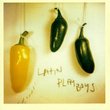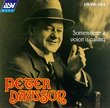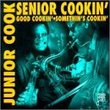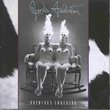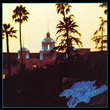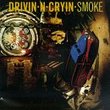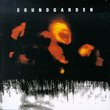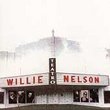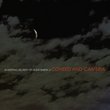| All Artists: Deconstruction Title: Deconstruction Members Wishing: 1 Total Copies: 0 Label: Warner Bros / Wea Original Release Date: 1/1/1994 Re-Release Date: 7/12/1994 Genres: Pop, Rock, Metal Style: Alternative Metal Number of Discs: 1 SwapaCD Credits: 1 UPCs: 093624554424, 093624554448, 743212485226 |
Search - Deconstruction :: Deconstruction
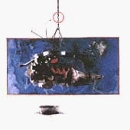 | Deconstruction Deconstruction Genres: Pop, Rock, Metal
|
Larger Image |
CD DetailsSimilar CDs
Similarly Requested CDs
|
CD ReviewsAwe-inspiring and brilliant, but maybe not for everyone D. I. Javier | Los Angeles, CA United States | 07/17/2003 (5 out of 5 stars) "a little history: this is the single-album project that Eric Avery (bass) and Dave Navarro (guitar) of Jane's Addiction put together after the band broke up to get the last of that era out of their systems before moving on to other things.how did it turn out? I think it is one of the best albums in my collection and could easily compete with "Ritual de lo Habitual" or "Nothing's Shocking" in terms of musical virtuosity, quality of songwriting, and, perhaps most importantly, imagination and beauty. the album was a conscious effort to break away from standard rock song structures. the end result is a collection of beautifully crafted, interesting and complex songs. they throb with power and passion and shimmer with polished technique, and are held together with solid songwriting. for fans of guitar greatness, the song "Iris" (an instrumental) is probably reason enough to pick up this album. some of Dave Navarro's finest strumming went into this project.not all Jane's Addiction fans will go for this album. Eric Avery does the singing on most of the songs (Navarro sings "Big Sur") and his voice is certainly an adjustment from Perry Farrell's. he sounds a bit like Peter Murphy, if anyone is familiar with that style. on first listen it may sound dirgelike and monotonous, but give it a chance and I think you will grow to love Avery's vocal style.if you are looking for an interesting, forward-thinking album that will keep you listening for years, you really ought to give this album a try. it may not be for you, but it may also become that obscure, little-known gem in your collection." How Deconstruction Was Born & Dead Luca Mirabile | 04/28/2006 (5 out of 5 stars) "Eric Avery,Dave Navarro & Michael Murphy on Deconstruction: Dave Navarro: Jane's Addiction ended and we just got together and started playing music. Eric and I had wanted to do something on our own, somewhat removed from the whole Hollywood-L.A. band thing, and just do something for ourselves. Eric Avery: I liken having been in Jane's Addiction to having a relationship with someone that's all wrong. Part of what makes the sex so great is what makes it doomed to an early end. This analogy really does apply, because when you break up with somebody, when you've been in relationship like the one I had with Jane's Addiction, you swear off all relationships at first. You know you'll die a lonely dowager, but that's OK. And then out of the blue, you get your penis rekindled. During the eight years I was in the band, I went through the whole process. In the beginning, we were all naive, things were going well, it was really fun. Then the band started to take off, and everything went through the roof. Unfortunately, things became business-like, uncomfortable, and we began to split apart. It's weird to be at the end of a cycle like that, having run the gamut of the usual 'rock story' from beginning to end. Get signed, get strung out, break up. Michael Murphy: I played with Eric about three years ago in another band called Daisy Chamber. That's when I met him. The Ritual de lo Habitual record had just been recorded and he had a little time off before they started touring. He was a temporary member of Daisy Chamber. After Jane's broke up, I ran into him at Canter's Deli. He told me he and Dave had been having trouble finding a drummer, so he said, 'Come on down.' I did, and things gelled immediately. Eric: Shortly after the last Jane's Addiction concert in Hawaii, I rented a house in Big Sur. I ostensibly went up there to just detoxify from the whole Jane's Addiction experience. While I was in Big Sur, I spent a certain amount of time every day writing. It was really a discipline because if I didn't do it one day, I really felt like I was sloughing off. The nice surprise was that as I started to think about what I wanted to do, I got excited again. Dave: Everything was fair game as far as we were concerned. That was the whole point -- to take elements of different types of sound and music, and put them all together, even if they didn't necessarily fit in. Eric had gone up to Big Sur by himself and had written a few things. At the time, I was getting my life together and writing a few things on my own. He came back, we had time, and we just basically started working on my 8-track in my apartment. Eric: I felt the prognosis on my musical career was looking bleak because I had spent so much time with it being a business. I had made a joy a duty, a great phrase that I got from a friend's mother. I felt finished about making rock music. I was also simultaneously disillusioned about the whole alternative music scene, and I still feel that way. In the process of starting to think about it and talk about it, I started to get excited. I wasn't interested in making rock music per se any more. But then I began to think that it might be interesting to tinker around with song writing structure, not doing verses and choruses and things like that. That's when my interest was piqued about making guitar music, the idea of using loops and putting together parts like David Salle paintings, putting parts that don't work next to each other and seeing if a new relationship happens between them. This process lead up to 'L.A. Song.' The first and second parts of 'L.A. Song' have no real connection, but the fact we put them together does make sense because we allow them to exist side by side. Dave: Deconstruction is what it is. It was just a project Eric and I felt like we needed to do. I'm glad we did it. It helped me grow as a musician. I'm proud of a lot of the work on the album. It was a great learning process. Eric: The word deconstruction applied to where I was at the time and also was prophetic about where I was going to be a year and a half later. It represented the demise of Jane's Addiction, the final break between David [Navarro] and I, and really signifies that I really am no longer in Jane's Addiction. That part of my life is really in the past. The name Deconstruction fit instinctively without my knowing why. It seemed to dictate exactly what the experience was going to be about - not only in the relationship that I had with David, but how I made my music.It fits with deconstructive philosophy but the choice was totally unconscious, not contrived or manipulated. We began to write songs, not paying attention to what was being put out as far as the alternate of sound. Eric:You can't say that there isn't intent in this record. It's obvious that something is being said, whether you like what's being said or you don't. And I was so intent on every song. Once you get it all done, put it away, and then look at the life that you've lived for the time that you've been working on it, you see how inexplicably tied together your personal process is and how it came out on the record in ways you didn't realize. This actually tied into an identity thing. It really was like there were two processes going on during this time and that's part of the reason why it had to take as long as it did. It's interesting because what I had been apathetic about and ready to dismiss, I wound up a year and a half later fighting desperately to keep. This wasn't an easy process. Michael: I was able to bring a lot of samples and electronic stuff to it. The music developed into something different from anything else around, in that it's a combination of elements. We tried to keep things mixed up, so it wasn't just a take-off of Jane's. Eric: When we recorded 'Big Sur', we actually had to go to record stores, buy records and scratch them up to get a good scratch sound, so that we could put in a Hawaiian sound. It's a small part in between the first two verses before the song starts to get slow. In between the two parts, it just sort of drops out. But it's interesting. I was just thinking about my travels up and down the coast during the making of this record and how much of a sense of place there is. I mean before we changed the name, there were three places named L.A., Big Sur, and San Francisco. But I was just thinking about how so often that's how David, Micheal and I communicated to each other during the creative process. We would say 'it's like Big Sur,' and that's how we named it 'Big Sur.' Because actually so much of what I'm talking about was in the desert and not actually from Big Sur. But I kept saying the first two verses should be like being in the city and then the middle part should be like your driving up the coast and then the end should be that you arrive in Big Sur. Michael: We spent a long time with three or four parts on 'L.A. Song' that seemed to have nothing to do with each other. It was like a jig-saw puzzle, and finally one day we put it together correctly. Dave: L.A. Song captures what L.A. is about for us. It's a day in the life of L.A. Listening to it takes you through morning, noon, rush hour, evening. Eric: It's funny, because I was talking to someone about listening to music in cars and she pointed out that that isn't just indicative of L.A., that you spend a lot of time listening to music in cars. I have to remember that because here we don't walk or do anything except drive places. I do probably ninety percent of my music listening in the car. I rarely come home and put on music. Dave: The creative process involved trying different things on 8-tracks and cramming them together. There was no method, there was no formula. Every song was its own thing. We just threw everything in a pot and discovered what tasted good. We wanted songs that weren't necessarily verse-chorus-verse-chorus-guitar solo-outro. We didn't want standard rock songs, we wanted to be more experimental. I think we did that. Eric: After feeling so jaded about music for so long, I picked up an instrument that I really have not played at all. And it's such a big piece of the record. It really fit with that whole 'starting over' feeling. And I feel more that way about this record than I did about the first Jane's Addiction record. I said to somebody once, if I'm scared, then I'm doing something right. If I'm really trying to open the flood gates and see what happens, then I can't know whether or not it's really great. And so therefore, if I have that knowledge or even think I have that knowledge, then there's a calculation process that's going on that prevents trying to honestly open the mouth and see what happens. 'Get At 'Em' was the first song that I wrote, so it represented a lot of pent-up stuff. It seemed to build and build, and feel like 'too many heart beats a minute.' That was such a catharsis. At the time I had just come off being a commodity because we got so big in Jane's Addiction. Eric: At times, I've thought things like, "does Brian Ferry sing that way because that's the best he can do?" I always assume that these things are stylistic decisions people make. But in my case, most people wondered "Why did Eric sing so low in a lot of the songs?" The answer is that's where I'm the most comfortable singing. In actuality, that's just the best that I can do. Dave: This isn't a record for everybody. Some people will like it, some won't like it at all. We weren't aiming for mass appeal. We were aiming to get a lot of things within ourselves out in the open, which we accomplished. After Jane's Addiction, it was time to do something completely different, and we were a little selfish about it. We did more musically from a real cerebral point of view. Eric: And so the answer is try to pay close attention to where you're at as an individual rather than as a creative artist, because if you're not careful, you'll change. What I want to do now is very different from what Deconstruction was. I mean, there will be elements that are similar, but it's kind of the opposite attack that I'll be coming from, of wanting things to stay the same and be repetitive. Deconstruction is about distinctive individual voices and sounds. What we've done is to say, "This is what alternative music is." Alternative music has become the same thing as pop music. It was popular music. And then the word just became pop and now pop means something else. It's no longer the original meaning of the term, and the same thing is true for alternative music. We're still close enough to it that we don't read it as easily, but alternative music, by definition, can't be what you hear on the radio all the time. Because then, that's not an alternative. Dave: It was never etched in stone that Deconstruction was a band we were going to do for a long time. It was just something Eric and I felt we needed to do. I don't look at this as a band falling apart. I look at it like Eric and I just wanted to do different things. We did the record. We had a great time doing it, had a hard time doing it at times. But I wanted to tour and play live, while Eric wasn't as interested in that. That was determined long before the Red Hot Chili Peppers started happening for me. We just came to an amicable decision. If we ever want to do something again, the door is always open. " WOW, 10 years and still great Michael Storey | Londonderry, NH USA | 02/21/2004 (5 out of 5 stars) "I graduated high school in 1994. I don't have to think very hard about what was released that year in movies and music, my two favorites, Pulp Fiction and Deconstruction. I won't delve into pulp fiction but to this day if i am in a bad mood, all i need is a set of headphones and that dangling engine with a break in the chain. That is it.
I know they will never release another album (God only knows what avery is up to with ol alanis and navarro (lucky guy) is occupied with jane's addiction and carmen electra.) but if the one album is all we get then i say so be it. I could listen to "Big Sur" 1,000 times and never get tired of the bass line and violin sounding guitar. Navarro seems to make his guitar scream in certain songs. And then there are the lyrics, "gone are the dusty gods of duck and cover drills. gone are the dusty gods of echo cathedrals." Track #2 singles has so much going on in the beginning and end of the song. eric avery is talking while navarro carries this weird melodic background melody. it took me a couple of times to hear this too and i think that's what is great about the album, you hear new things with each listen that you swear you didn't hear the first time around. Bravo gentleman. I am going to listen to it right now." |

 Track Listings (15) - Disc #1
Track Listings (15) - Disc #1